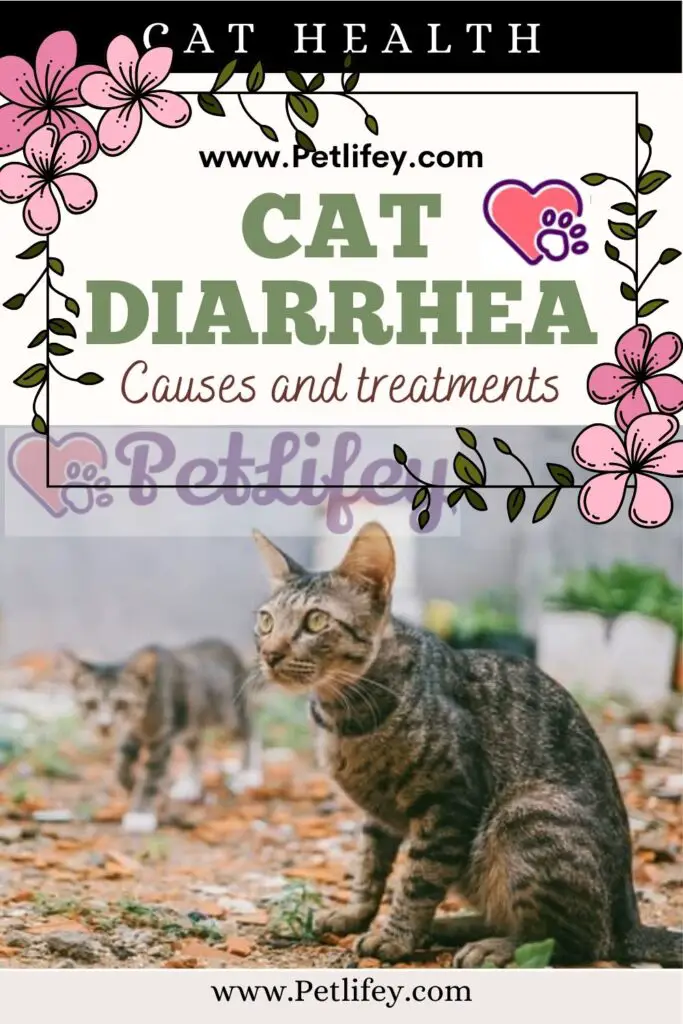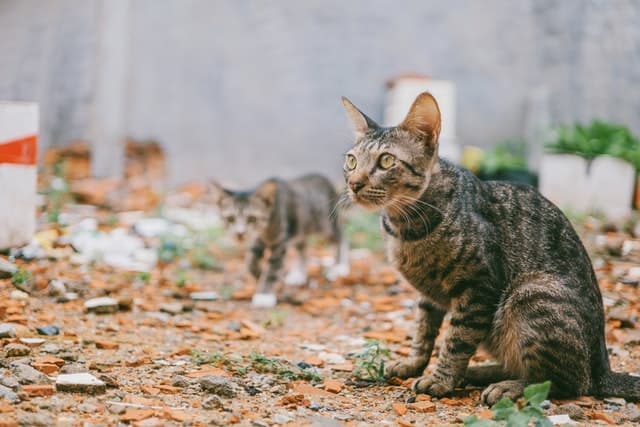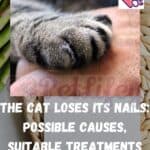
We can speak of diarrhea when the stools are liquid or semi-liquid and altered in quantity and quality. Here’s everything you need to know about cat diarrhea.
Does your cat have diarrhea and you don’t know what to do and what to do? Diarrhea is a disorder that can have various causes; some simple and not worrying, others more serious. It will be up to the owner to understand whether to take cat to the vet immediately or to wait a while and evaluate the evolution of the disorder in the home.
What’s to evenings about cat diarrhea

First of all it is necessary to clarify that we can speak of diarrhea when the cat’s feces are liquid or semi -liquid and altered in quantity (the number of daily defecations has increased excessively) and quality (consistency, smell, presence of traces of mucus or blood).
Diarrhea can be acute or chronic: if it is acute it disappears within a few days by itself or with the help of therapy; it is defined as chronic when it lasts longer than two / three weeks.
The most common and recurrent causes of acute diarrhea in cats are:
- hemorrhagic gastroenteritis;
- food allergies or intolerances;
- food poisoning;
- ingestion of spoiled food;
- food problems (such as poor quality foods or sudden changes in diet);
- parasites (roundworms, coccidia, giardia, tapeworms, strongyles);
- infectious pathologies (bacterial or viral);
- acute pancreatitis;
- liver and kidney pathologies;
- irritable bowel syndrome;
- intestinal invasion (sliding of a portion of the intestine into another adjacent portion);
- side effect of a drug.
As for chronic diarrhea, the main causes are:
- food intolerance;
- liver and kidney diseases;
- pancreatic insufficiency;
- malabsorption syndromes;
- forms of colitis (lymphoplasmacytic, eosinophilic, ulcerative, histiocytic);
- chronic intestinal parasites.
Diagnosis and what to do in case of cat diarrhea
What should you do if your cat has diarrhea? First of all try to understand if the intervention of the veterinarian is necessary. If diarrhea is the only existing ailment and Kitty does not have, for example, loss of appetite, weakness, fever and vomiting then wait, monitor the situation and reduce the amount of food until you notice an improvement.
If, on the other hand, the cat has many discharges of diarrhea in a few hours and associates other symptoms (such as those listed above) contact the veterinarian, bring a stool sample with you and describe to the doctor the other symptoms that you have seen.
The doctor may decide to perform tests such as stool, blood and urine analysis, coproculture, endoscopy, radiographic tests, exocrine pancreasfunction tests, tests for malabsorption, etc.
The therapies
Once the cause of the discomfort has been diagnosed, the vet will prescribe treatments and therapies and will indicate the precautions to follow.
If the disorder is related to eating problems or sudden changes in diet, the vet will show you how to correct the diet; if, on the other hand, the disorder is linked to a more serious pathology, it will establish the most suitable treatment to follow. Do not give your cat any medications that have not been prescribed by the vet, doing it yourself could even make the situation worse.
Possible presence of blood in the stool
If you notice streaks or drops of live blood in the cat’s feces, know that the cause could be the rupture of intestinal capillaries following repeated defecations. It is a blood loss that comes from the last section of the colon that does not cause particular concern.
On the contrary, feces with a dark color are more worrying as they could indicate the presence of digested blood, a situation that should not be underestimated and should instead be brought to the attention of the veterinarian.
Curiosities about cat diarrhea
Unlike what happens with dogs, diarrhea in cats tends to become chronic more easily and that in cats when they are still puppies is generally more critical and therefore it is necessary to monitor the situation much more carefully.






